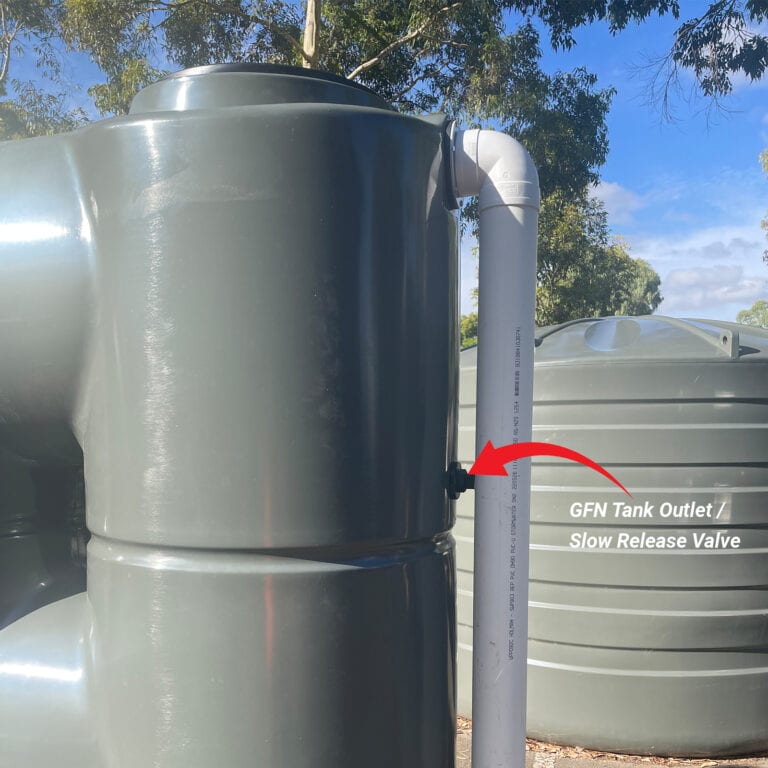Exploring the Various Uses Rain Containers for Residential and Commercial Features
As the global focus on lasting living techniques continues to increase, the use of rain tanks in both household and industrial setups has emerged as an essential option. The complex usages of rainwater containers offer a compelling case for their fostering, not only as a practical water-saving measure yet likewise as a testament to liable source management.
Benefits of Making Use Of Rainwater Tanks
Making use of rain tanks supplies many advantages for both houses and neighborhoods in regards to water preservation and sustainability. One of the crucial benefits of making use of rainwater containers is the considerable decrease in reliance on keys water system - Slimline water tanks. By capturing and keeping rainwater for later use, people and neighborhoods can decrease their need for treated water, inevitably relieving the worry on water treatment facilities and lowering energy usage related to water transport and therapy
Furthermore, rain harvesting via tanks supplies a reputable alternative water resource throughout times of water restrictions or lacks. This saved rain can be used for numerous non-potable purposes such as irrigation, purging toilets, and washing garments, decreasing the strain on standard water resources. Additionally, using rain containers can lead to cost savings for both families and areas by lowering water bills and reducing the requirement for costly framework expansions to meet growing water demands.
Fundamentally, the application of rain containers offers a sustainable and eco-friendly strategy to water monitoring, profiting both specific customers and the more comprehensive area in regards to water preservation, cost-efficiency, and resilience.
Rain Tank Usage in Watering
Offered the advantages of rain containers in preserving water resources and decreasing reliance on keys water, a substantial application exists in making use of kept rainwater for irrigation purposes - Slimline water tanks. Rain collecting systems can properly gather and save rainwater, supplying a sustainable water resource for sprinkling gardens, lawns, and agricultural areas. By using rainwater for watering, homeowner can reduce their dependancy on cured water sources, resulting in cost financial savings and environmental benefits

One of the key advantages of utilizing rain for irrigation is its pureness. Rain is naturally soft and totally free from the chemicals and additives commonly found in mains water, making it optimal for beneficial plants without the danger of unsafe effects. Furthermore, rain goes to ambient temperature level, which can benefit plant growth by preventing temperature level shocks that can take place with cold mains water.
Rainwater Tanks for Bathroom Flushing

Implementing rain storage tanks for commode flushing is a cost-efficient and check my source ecologically friendly method that can be quickly incorporated into both household and industrial residential or commercial properties. The saved rainwater can be utilized to purge bathrooms by connecting the storage tank to the existing plumbing system. This straightforward yet efficient remedy can substantially decrease water usage in a building, especially in areas where water shortage is a problem.

Incorporating Rain Storage Tanks in Landscaping
A reliable technique for improving sustainability in landscaping entails incorporating rainwater containers to optimize water usage and advertise environmentally friendly practices - Slimline water tanks. Including rain tanks in landscape design offers countless advantages for both household and business buildings. These containers can catch and store rain overflow from roofing systems, which can then be used for sprinkling gardens, lawns, and plants. By making use of rain for watering purposes, homeowner can lower their reliance on municipal water resources, leading to set you back savings and conservation of priceless water resources.
Along with providing a lasting water resource for landscaping needs, rain tanks can likewise aid in managing stormwater overflow. By recording rain that would otherwise move right into storm drains, these storage tanks can minimize disintegration, decrease flooding dangers, and protect against pollution of natural water bodies. Including rain storage tanks in landscape design can contribute to the general visual allure of the residential or commercial property, showcasing a dedication to environmental stewardship.
Industrial Applications of Rainwater Storage Tanks
Making use of rainwater storage tanks in commercial settings supplies a sustainable solution for water administration and preservation, profiting services and the environment alike. One key business usage is for irrigation purposes, where harvested rain can be used to water landscape design, gardens, and agricultural fields bordering industrial homes.
Furthermore, rain collected in tanks can be treated and made use of for non-potable objectives within commercial residential properties, such as flushing commodes, cleaning, and cooling systems. In general, the consolidation of rain storage tanks in industrial setups offers a practical and environmentally accountable technique to water monitoring.
Verdict
To conclude, rain containers offer various advantages for both domestic and industrial residential properties. From watering to commode flushing and landscape design, the use of rain containers can aid preserve water sources and minimize water expenses. Furthermore, integrating rain storage tanks in business setups can bring about significant price financial savings and ecological benefits. In general, the versatility and pop over to this site sustainability of rainwater tanks make them an important investment for any type of homeowner seeking to boost water effectiveness.